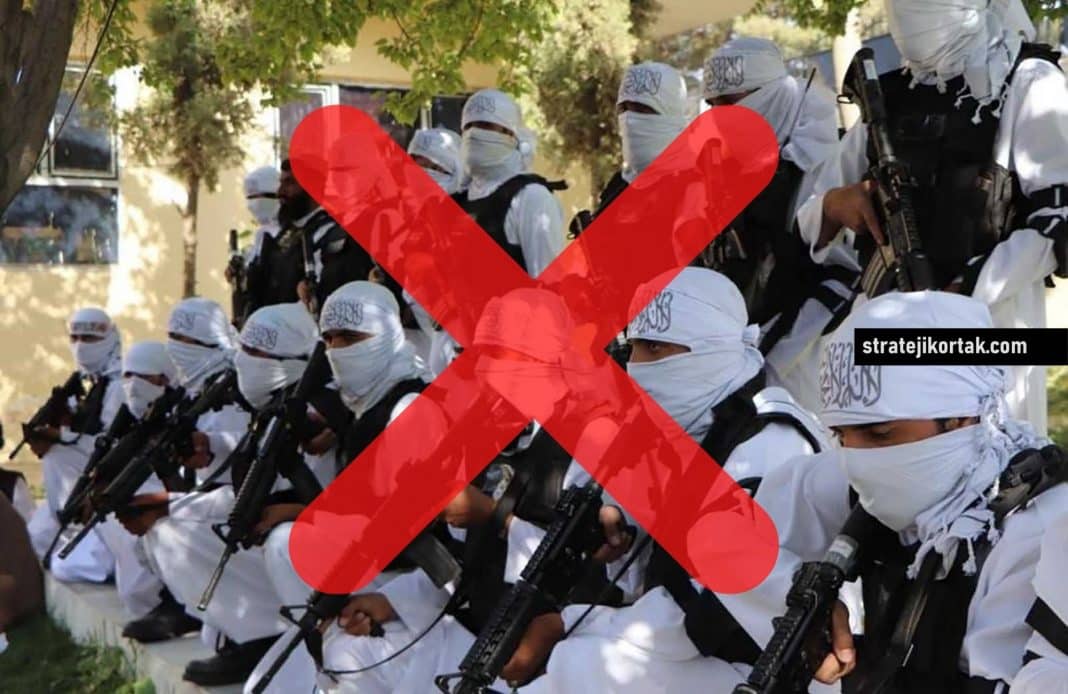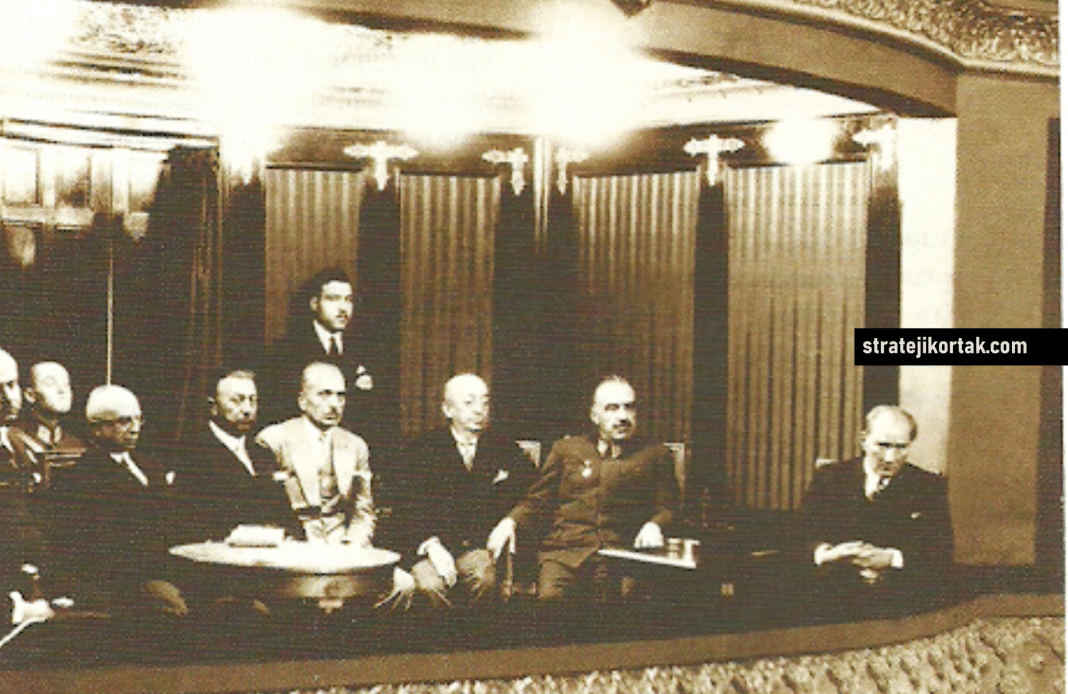Rivalry between the USA and Soviet Union slowed down in the 1980s and due to that reason, traditional security understandings of realist conception stagnated and in this period of opportunity, security studies academics started broaden field’s agenda throughout several dynamics. Relationship between war, peace and gender is highly intersectional and became a field of research in feminist theories of international relations. In order to analyse complex relations between each other, I will divide this section into two categories; first section will be consisting on feminist approaches on the issue of war and its effects on the women in general, second category will be consisting on the peace and role of the women.
Despite the realist theory’s conceptualization of security as a state-centred, macrolevel analysis which can also consider as top-down understanding, feminist theories argued that the such definitions on the security consequence with masculinisation of security studies, and also understanding war. Thus, such understanding of consisting security, according to feminist theories, strengthening the position of men against the women, leaving women only space for peace as caretaker which I will describe later.

Feminists, on the other hand, suggesting another point of view, in order to delink their position from the state centric positions of realist theories they focused on bottom-up approach, which emphasize more space for society and its relations in order to understand women’s position on war. Moreover, while using bottom-up methods, they also create a zone of focus in microlevel, which examine role and position of women in a given period. Moreover, feminist studies linked the concept of security with justice and emancipation which divide traditional hierarchical distinctions, emancipation used as mean for the ending women’s subordination from the social structures.
Furthermore, feminist theory pointed out that masculinity of strategic discourse which delinking women from the security area though strengthening the hegemonic masculinity and valorisation of war, symmetrical dimension of heroic masculinity. Peace research on the other hand, struggling against the essentialist view of traditional thinking. Essentialist conceptualization of peace argued that, men’s aggressive nature, from biological origins of muscular development of men through testosterone and sociological hunter division of labour role of men from ancient ages to modern day led to aggressive states and policy mechanisms, on the other hand, women’s biological roots of lesser testosterone and their maternal nature and sociological role of women as caretaker due to her maternal instincts led women to more prone to pacifist political understanding.
However, this understanding consequence with the problem of false dichotomy and also created prejudice over the women in terms of their representation on the security strategies. Moreover, there is no clear evidence about such a clear distinction between men and women in terms of aggressiveness and pacifism, thus, there is also evidences that the women can be aggressive as their men counterparts in terms of security such as in the example of Thatcher who were the first female prime minister and also led to Falkland Wars against Argentina or in the example of the Sabiha Gökçen who were an active war pilot in Turkish Republic and served during the Revolt of Dersim. On the other hand, there is also evidences show that the main issue might not be about the essentials but our way of thinking. Researchers claimed that the people who have supporting attitudes on the gender equality have also more diplomatic attitudes in their political understanding rather than the aggression (Tickner, 2001: 61).
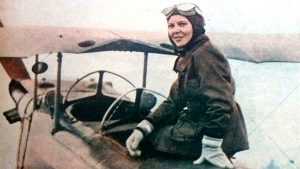
Furthermore, women’s political activities often overlap with the conflict transformation such as in the example of US Protests in 1968, women’s demonstrations for rights also overlapped with the demand of end of war in Vietnam both by individual activists and NGOs. Plus, feminist terminology of peace is not only restricted to classical military conception of security which is absence of external threat, but also includes the food, economic, environmental, cultural, societal securities which establish close connections with human security.
Moreover, feminist conception of peace also includes abolishment of gender-based violence against the women. In that sense, feminist notion of peace efforts is not derived from the essentialist concepts but from the overlap of needs of political environment, thus, it is also worth to mention that the peace efforts of feminist conceptions are also feeding from the maternal conceptualisation of caretaking.
Victimization of women in war is another critical issue for feminist agenda of war studies. First and most important aspect of the victimization is the using rape as a military strategy against the hostile nation in order to achieve possession of territory. During the Bosnian War, rape used by the Serbian forces as oppression method against the Serbians in order to achieve dominance against the Bosnians. After the war, Serbian use of rape classified as systemic rape and considered as second biggest crime against humanity. However, despite the new conceptualization of rape as a military strategy, use of rape as a possession can be traced back to the antiquity, in terms of spoils of war, if the siege resolved through violence, which consider women also as a booty for the conqueror army (Phang, 2008: 244).
On the other hand, there was also works done throughout the history in order to prevent use of rape as a spoil of war such as in the example of the Church’s Peace and Truce of God institution, or Napoleon’s orders in Egypt Expedition (Markham, 2005: 106). Another important aspect of victimization of women derived from women trafficking and forced sexual workforce for armies that create pressure for women in a given societies. During the Korean War, US Army used more than one million women as sex providers for its own personnel and after the war, women who’s used as sex workers in US Army later outcasted by their own societies (Tickner, 2001: 51). Use of prostitution by armies are also consequence with increasing sexual violence in post-war period and also increasing expulsion of women in post-war period. After the Rwandan Civil War, raped women were expulsed from the society while on the other hand their children labelled as the “devil’s children” by the society (Tickner, 2001: 50).
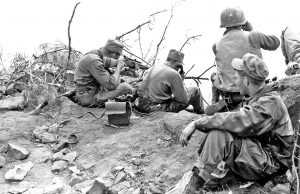
Another important impact is the displacement and increasing empowerment of women during the war. Main problem is the fact that due to war’s effect on male as combatant actor, women became the sole caretaker of the family in order to ensure continuation of family, men often disappear, go into hiding or became the victim of ethnic cleansing and left women alone in terms of protection and responsibilities of home. Today’s ongoing Civil War in Syria is important example. After the start of civil war, main refugee groups were consisted on women and child rather than men, on the other hand, men’s left of house in order to join Civil War and increasing threats led women join the war against the Daesh, which later ended up with militarisation of women in the Northern Syria. Displacement, in general, consequence with also rise of women suffering from the war, as in the example of the Liberian Civil War, at the end of 2001, ranging from the %50 to %80 of refuges were women. Moreover, rape against the women as a weapon is can be seen as a military tactic in order to possess hegemony due to masculine nature of the war in perception of national security.
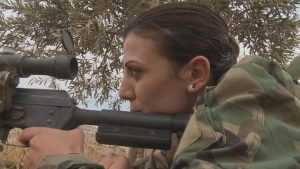
Role of the women in military services are varying across the countries. Most common way of use of women labour in militaries are the backbone of the services; cook, laundry, nurses and doctors, which can generally call as support units. However, women’s role not only redacted into the sole military support, the, throughout the history, active warriors as well. One of the earliest examples of the warrior women notion can be consider as Amazon Warriors, myth that consist on sole female warrior clan.
during the 14th century, in Anatolia, Bacıyan-ı Rum, sisters of Rum, consist on women fighters were pursued jihad policy against the Byzantine forces in Western Anatolia (Köprülü, 1991). During the First World War, women used as workforce in industries in order to continue industrial productivity for winning the war in different countries. Jean d’Arc, famous heroine during the Hundred Years War were brief example of the how women can participate in wars as leaders and organizers. However, her end was also brief example of the how women treated in the national security issues as a threat and excluded. This brings us the other issue; women and their relations with national security.
Women leadership in national security considered as marginal in power structures. On the other hand, leaders such as Margaret Thatcher, Tansu Çiller, despite major economic and social flaws, both were great leaders in security area of states while Thatcher waged war against the Argentina in the Falkland Islands, on the other hand, Tansu Çiller waged war against the PKK, unleashed the power of the army in order to contain the threat of separation. However, these examples are still very rare in the world politics. This problem occurs due problem of representation of women in legislative and executive departments of state, overrepresentation of men in general and due to problematic dichotomy between men and women mentioned above women representation seen as “soft” and “incapable for maintain adequate security dynamics in government” (Williams, 2017: 9). In conclusion, women’s role in military were enhancing, however, despite the historical centrality of women in war, women still neglected by structure of world politics through lack of representation.
[irp posts=”29215″ name=”Çin’in Tek Kadın İmparatoru: Wu Zetian”]
Kaynaklar
Körpülü, Orhan Fuad (1991). “BÂCİYÂN-ı RÛM”. TDV Encyclopedia of Islam, Vol. 4 (Âşik Ömer – Bâlâ Külli̇yesi̇) (in Turkish). Istanbul: Turkiye Diyanet Foundation, Centre for Islamic Studies. ISBN 9789753894319.
Sara Elise Phang, Roman Military Service: Ideologies of Discipline in the Late Republic and Early Principate (Cambridge University Press, 2008)
J. David Markham, Napoleon for Dummies: A Guide for the Rest of Us!, (Hoboken: Wiley Publishing, Inc., 2005)
[/vc_toggle]


